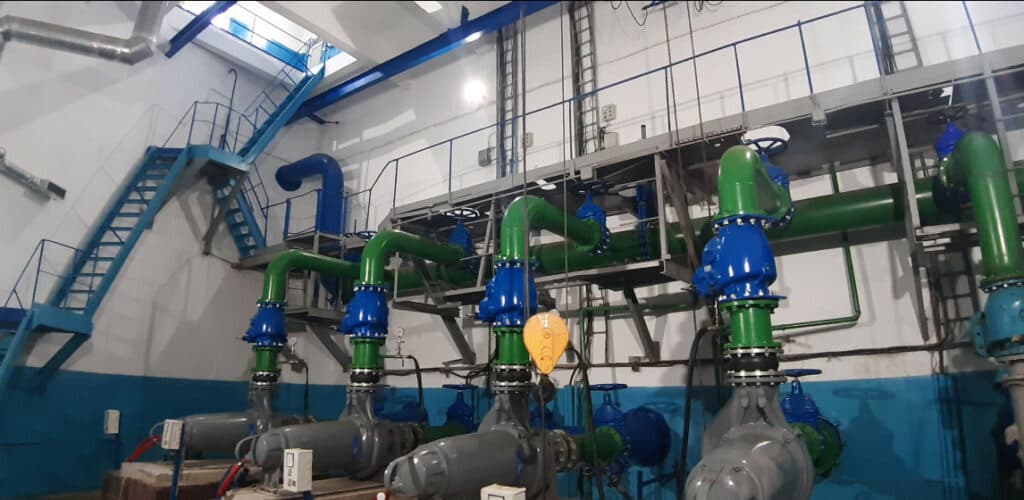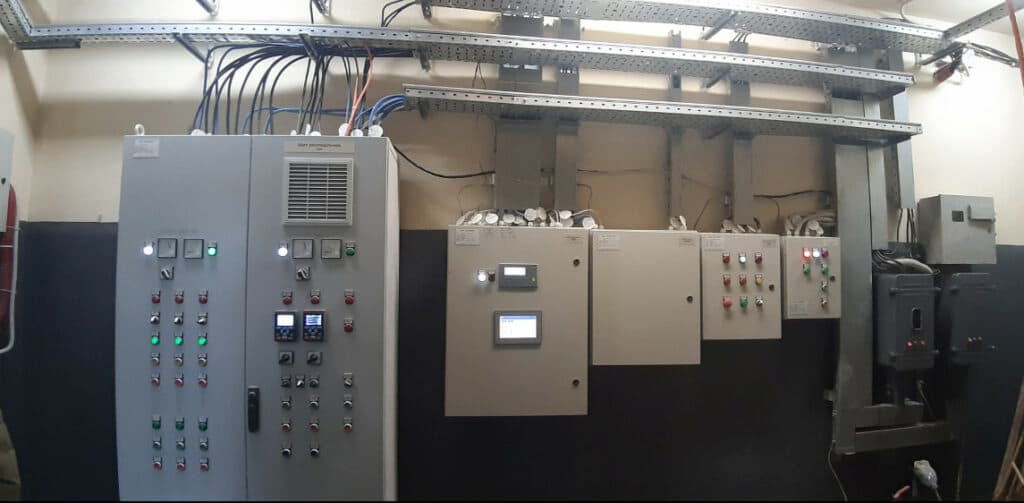
Energy efficiency and sustainability: modernising water supply systems in Ukraine
06/07/2023
Water supply and wastewater treatment are among the most underfunded utilities sectors in Ukraine. All their infrastructure is underground, so municipalities do not have any political credit in allocating funds for this sector, since people cannot see the tangible results. Do they have water? Yes, they do. Does it flow somewhere? Yes, it does. People ring the alarm bell only when problems arise – for example, when there is a burst pipe or pumping equipment has broken down.
However, this approach is not very effective, since a water supply system directly or indirectly influences all the essential maintenance processes for a community. A modern and fully operational water supply system is an integral component of the resilient, reliable, and sustainable use of resources both at the micro level – for community residents and utilities workers – and the macro level – for the state and the broader environment.
In this context, Nefco – the Nordic Green Bank, in partnership with the European Union, has developed the NIP Ukraine Water Modernisation Programme. Khmelnytskyi is one of the municipalities where the programme is implementing a final-stage project.

Iryna Fedorenko, Investment Adviser at Nefco, and Oleksii Shvets, Manager of the project in Khmelnytskyi, explain what actions are envisaged by the programme, how it is implemented, how communities and the state can benefit from the programme, and how it can help to prevent the aggravation of environmental problems in Ukraine.
What is the modernisation of wastewater pumping stations?
The project includes the partial reconstruction of pumping stations and the replacement of obsolete equipment with energy efficient and automated equipment. Mechanical, technological, and electrical equipment is replaced with modern equipment with high technical and economic performance.
“In Khmelnytskyi, the programme provides the modernisation of wastewater pumping stations. These are the stations for domestic and industrial wastewater disposal that help to improve energy efficiency and sustainability of the sewage and wastewater treatment system in the city,” Iryna Fedorenko explains.
In particular, the programme modernised the raking equipment that processes wastewater and filters out the bulk waste, which people throw in toilets – for example, diapers. The wastewater stations are the filters that bear the brunt of the bulk waste. After processing through the pumping stations, the wastewater then goes to treatment facilities through the sewers. Thus, the automation of the processes of the wastewater pumping operation helps a lot.
Moreover, the pumping equipment in the stations was fully replaced. This is the most expensive equipment, which the City Municipal Utility “Khmelnytskvodokanal” cannot procure using its working capital. The programme is also carrying out the external and internal renovation of structural units.


Why is modernisation needed?
The reconstruction of wastewater pumping stations in line with up-to-date national regulations and environmental standards provides economic and environmental benefits for the municipality. Since obsolete equipment and structural units were in critical condition and required continuous investments – this resulted in excessive operational costs.
The programme doesn’t cover the whole city – for example, only three wastewater pumping stations in Khmelnytskyi are covered by the programme. However, Oleksii Shvets says that these changes and investments are important, since they enable the municipality to release funds for the modernisation of other stations in the city.
“The wastewater pumping stations transfer great volumes of wastewater and cover the great area of the municipal sewage system. And two of them are the greatest in the city in terms of wastewater transfer volumes, following the main wastewater pumping station,” the project manager Oleksii Shvets says.
In fact, the new equipment provides a lot of benefits. These include considerable energy saving – 33% or UAH 1.5 million per year; the reduction of CO2 emissions; the extension of the stations’ lifetime by over 20 years; and the improved quality of wastewater treatment. The investments have a short payback period, especially during the economic crisis, since the cost of energy is constantly growing.
“During the war, this is an important environmental project for cities, as malfunctioning pumping equipment can cause an environmental disaster, contaminating soils with wastewater, with a risk that it will then seep into the groundwater,” Iryna Fedorenko says.

These are invaluable changes for utilities workers themselves, as the new equipment has greatly simplified their work.
“The project is focused on the improvement of workplace safety for the water utility workers facing harmful vapours from wastewater in the maintenance of the stations. New ventilation systems were installed at the stations, and the mechanical processes for the stations’ maintenance were automated through the installation of electric hoists,” the representative of Nefco Iryna Fedorenko says.
Is the project relevant during the war?
Oleksii Shvets says that during the war, the project became even more critical because of the great damage caused to critical infrastructure.
“In Ukraine, due to Russia’s full-scale invasion, there are frequent power outages. Wastewater pumping stations might not seem to pose any environmental threat. But malfunctions and breakdowns at pumping stations can cause wastewater to spill and contaminate soils. Thus, it is very important to ensure the use of properly functioning equipment at stations. Moreover, it is essential to provide generators, with which the stations are equipped now for emergency situations,” says Oleksii Shvets.
“The project in Khmelnytskyi is in its final stage. And we are happy that the city and “Khmelnytskvodokanal” have already experienced its positive effects. We are happy that we can implement such energy efficient and environmentally important projects in Ukraine, even despite the war,” Iryna Fedorenko concludes.
Author: Olga Kotorenko
Article published in Ukrainian by Barnews.city
Stories
-
Katarina Mathernova: If Ukraine had a human face and a human spirit, it would be 10-year-old Roman Oleksiv
-
A regional mission to drive social entrepreneurship: the story of Ksenia Kosukha
-
EU restores safe water supply for 100,000 Ukrainians affected by war
-
Promoting IT during the war: Lviv IT cluster and how EU4Digital helps
-
Frontline digitalisation: Kharkiv IT Cluster collaborations
-
How EU4Youth is driving opportunity and success among young Ukrainians